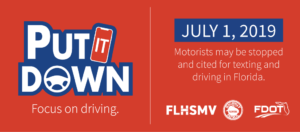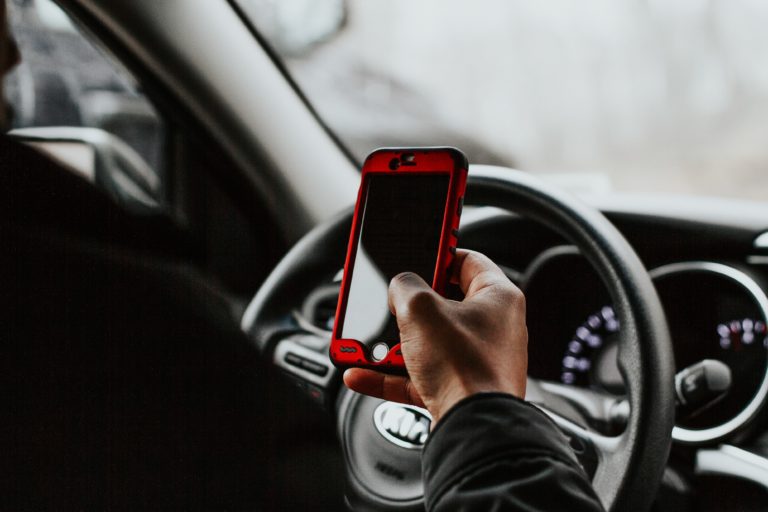Motorists in Florida started July with a new state law that makes texting while driving a primary offense.
Previously, the infraction was a secondary offense. Florida is one of the last states to handle this specific form of distracted driving as a primary offense.
What you need to know about the new law

While the law went into effect on July 1, only warnings will be issued until January. In 2020, however, when officers can begin writing citations, a first offense will be punishable by a $30 fine. A second violation will cost $60. Court costs and fees also would apply, and points will be added to driving records. (While Florida’s fines for the offense aren’t as steep as some other states, points assessed against your license can definitely impact your pocketbook in the form of potentially higher insurance rates.)
Specifically, the 2019 amendment states a person may not operate a motor vehicle while “manually typing or entering multiple letters, numbers, symbols, or other characters in a wireless communications device.”
The new law also bans the use of any handheld wireless communications devices in school and construction zones. Warnings are being issued, but citations for illegal use of handheld wireless devices in these specific areas will begin on Oct. 1, 2019.
So how will this new law work?
With any new legislation, there are bound to be questions. Here are a few key points:
- There is no limit to the number of warnings you can receive during the transition period.
- Police officers can only stop a driver for texting and driving while the car is in motion. However, a citation can be given if the driver should be in motion but is distracted by a phone.
- Police are not allowed to ask for or take a driver’s phone to confirm he or she was texting. However, officers are trained to identify when a driver is typing into a wireless device and have been enforcing this (as a secondary offense) since 2013.
- Using your wireless device for GPS directions is permitted. However, it is recommended to type the address in before starting the trip. It’s also advised to use the verbal function to receive the directions (as opposed to reading them).
Distracted driving can be deadly

This latest legislation comes after years of studies on the consequences of distracted driving.
According to the Insurance Journal, Florida is one of eight states that saw a nearly 6% spike in fatalities in 2018. Driver behavior was one of the main reasons attributed to lives lost in car crashes.
The Florida Department of Highway Safety and Motor Vehicles breaks distracted driving down into three categories: Visual, manual and cognitive. Texting requires all three of these distractions. In 2018, distracted driving caused almost 1,400 crashes in Manatee and Sarasota counties.
While texting while driving is now a primary offense, other visual, manual and cognitive factors remain less regulated and a persistent problem. There’s no specific law against applying makeup, eating or being otherwise preoccupied. Regardless, distracted driving is a form of careless driving for which you can be cited.
The safest way to travel is with your hands on the wheel, your eyes on the road and nothing to distract you from the task at hand: arriving safely at your destination.